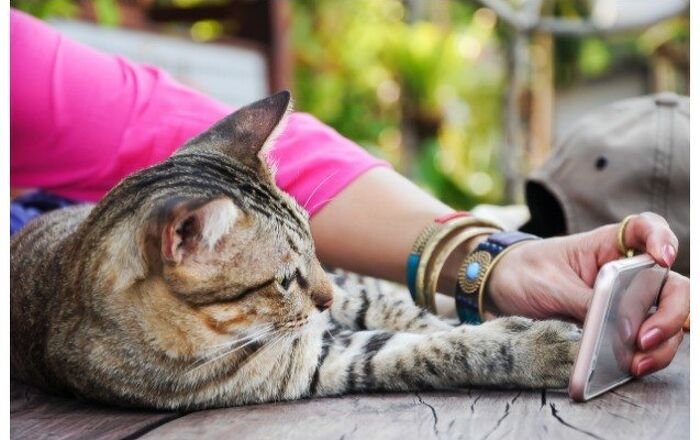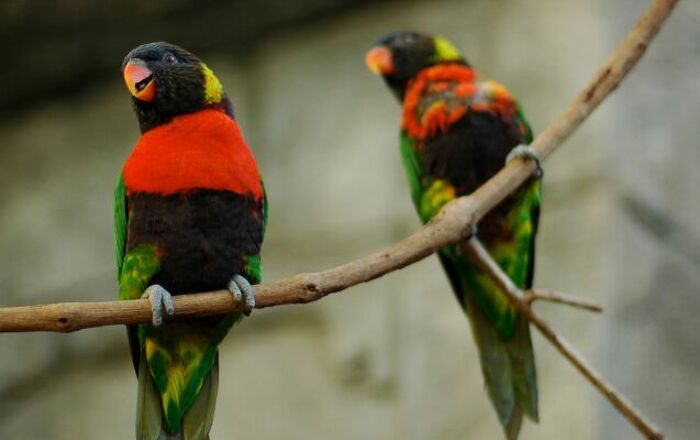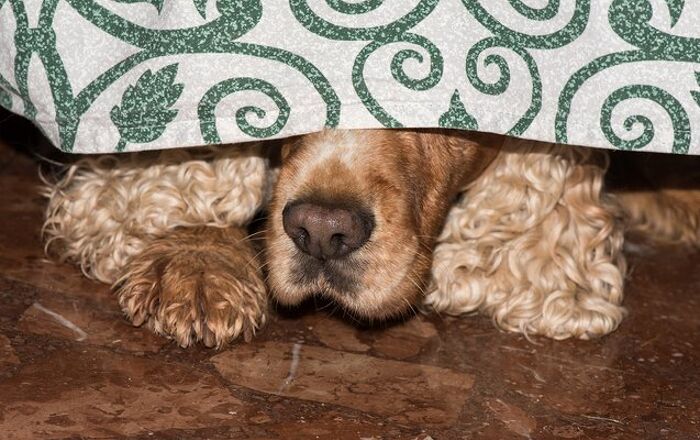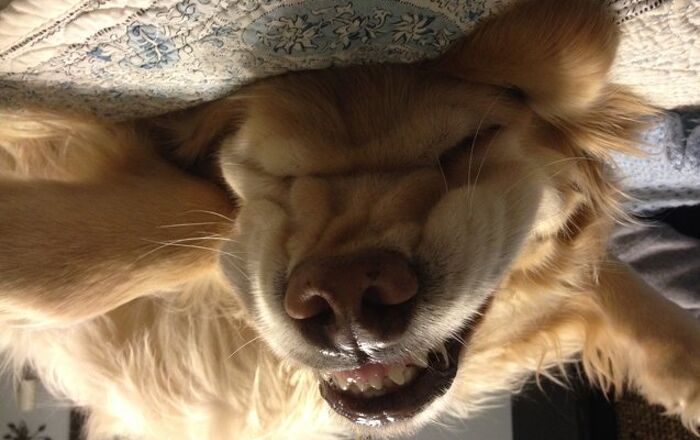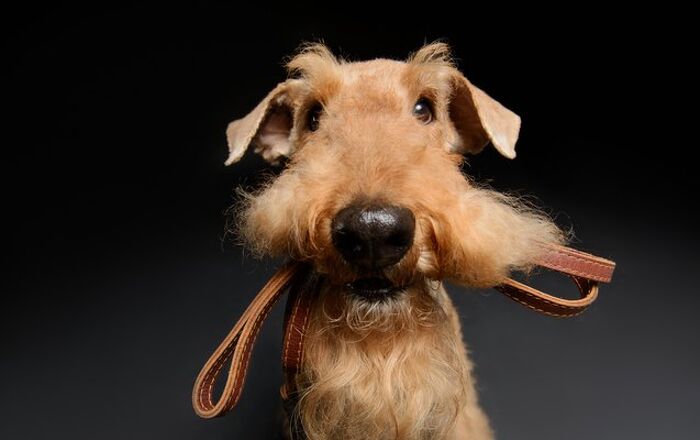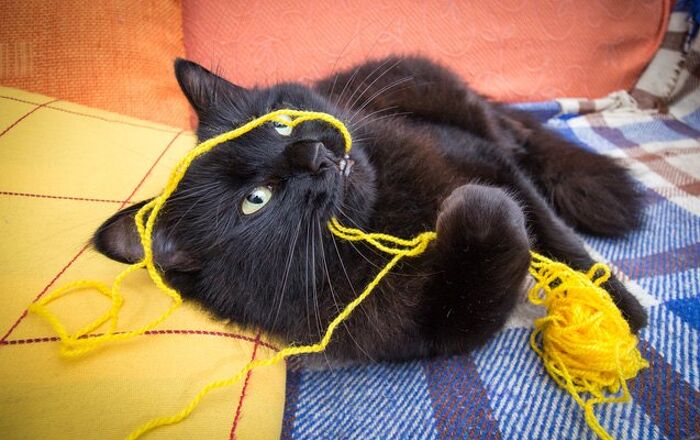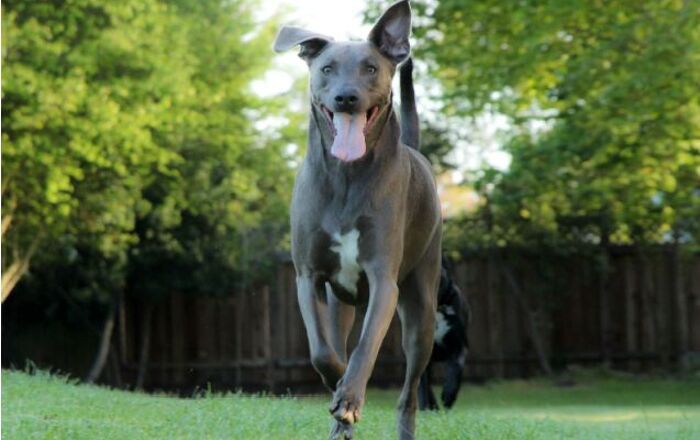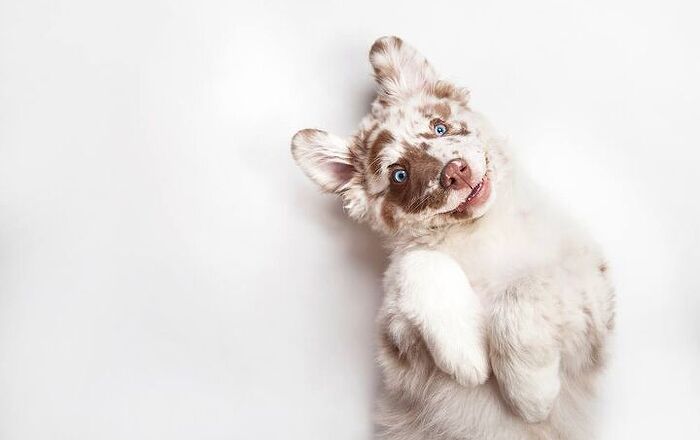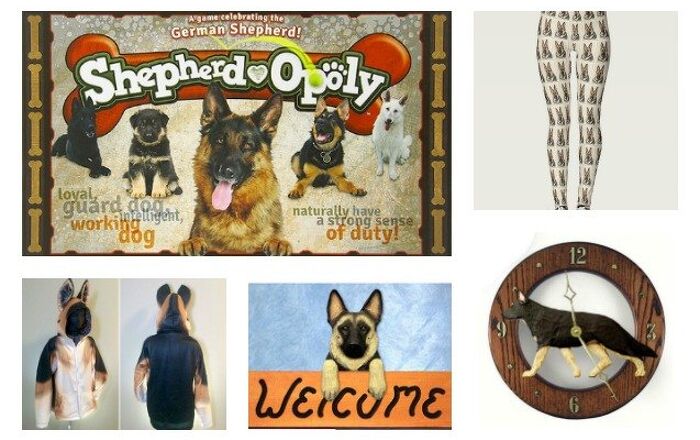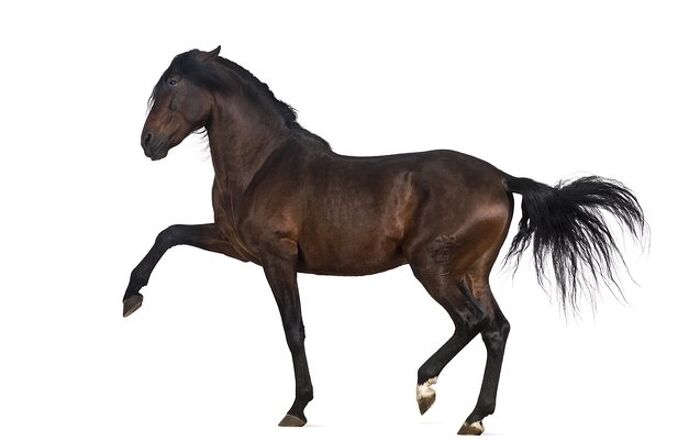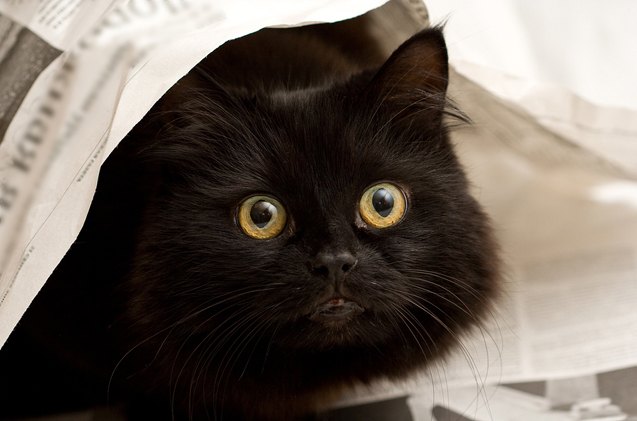
November 17 is National Black Cat Appreciation Day! There’s a lot of fiction surrounding these inky-colored kitties – let’s talk about what’s true or false about black cats.
In North America, November 17 is reserved to celebrate black cats. It’s actually the second of two celebrations in the US – the first happening on August 17 – and wedged between the UK’s celebrating black cats on October 27). Why so much black cat appreciation?
Strangely, superstitions and myths abound about black cats, and that might prevent black cats from finding their forever families. Here, we debunk four of the most pervasive – and erroneous – myths about black cats.
Related:Black Dog Syndrome: Can People Be Color Blind When It Comes To Dogs?
Myth: Black cats bring bad luck.
As the proud assistant to a black cat named Newt, I was surprised when a friend came to visit and felt uncomfortable around my sweet furry friend. He paused to let her pass by and avoided spots where she reclined. With origins likely in the Middle Ages, the fear of black cats – specifically of a black cat crossing your path and implying your impending death – this silly fear has pervaded since. Black cats don’t bring bad luck any more than yellow canaries or white dogs or gray elephants. In places like Japan and the British Isles, black cats are even considered lucky. Also a myth but a happier one!
Myth: Witches turn themselves into black cats.
During the age of witchcraft, black cats became associated with witches because people assumed that witches took in black cats and then could turn themselves into black cats. Er, this one is hard to debunk because it’s hard to believe that it’s a genuine fear, but it is. In fact, it informs the next myth…
Myth: Cruelty to black cats spikes on Halloween.
This is a social-media-circulated fear that has no proof to back it up. Shelters across the country report no spikes in adoption of black cats around Halloween (allegedly, according to the myth, to satanic cults) and no increases in animal cruelty toward black cats around Halloween. Shelters than ban black cat adoptions on October 31 just harm the chances of those cats finding a home on that day!
Related:Black Dog Syndrome: Belle’s Story Common Among Shelter Dogs
Myth: Black cats are harder to adopt.
A study conducted by the ASPCA looked into the root of the myth that black cats are harder to adopt than other colors of cats. They also looked at dogs, too, and found that for black cats and dogs, the data appeared to support the fact that more black animals were euthanized. When they dug deeper, though, they found that the intake of black pets is much higher than other colors. There are more adoptable black cats than other colors of cats, which makes it appear that they’re being adopted out less frequently. One potential problem? Black animals are harder to photograph!
Here’s how you can help black cats in your local shelter: If you have a good camera, consider donating your time and talents to help black cats show their best sides. Check out this National Black Cat Day board on Pinterest for inspiration. And spread the word about how great black cats really are!

Maggie Marton is the definition of “crazy dog lady” and an award-winning writer based in Bloomington, Indiana. Obsessed with dogs, she writes for numerous pet-related publications and is active in animal welfare. When she’s not reading about dogs, writing about dogs or walking dogs, she loves to hike and nap—both activities usually with her dogs. Maggie lives with her husband, John; Emmett, a pit mix; Lucas, a shepherd mix; Cooper, a pit mix; and Newt, the lone kitty (who, of course, runs the show). You can find her online at OhMyDogBlog.com.
